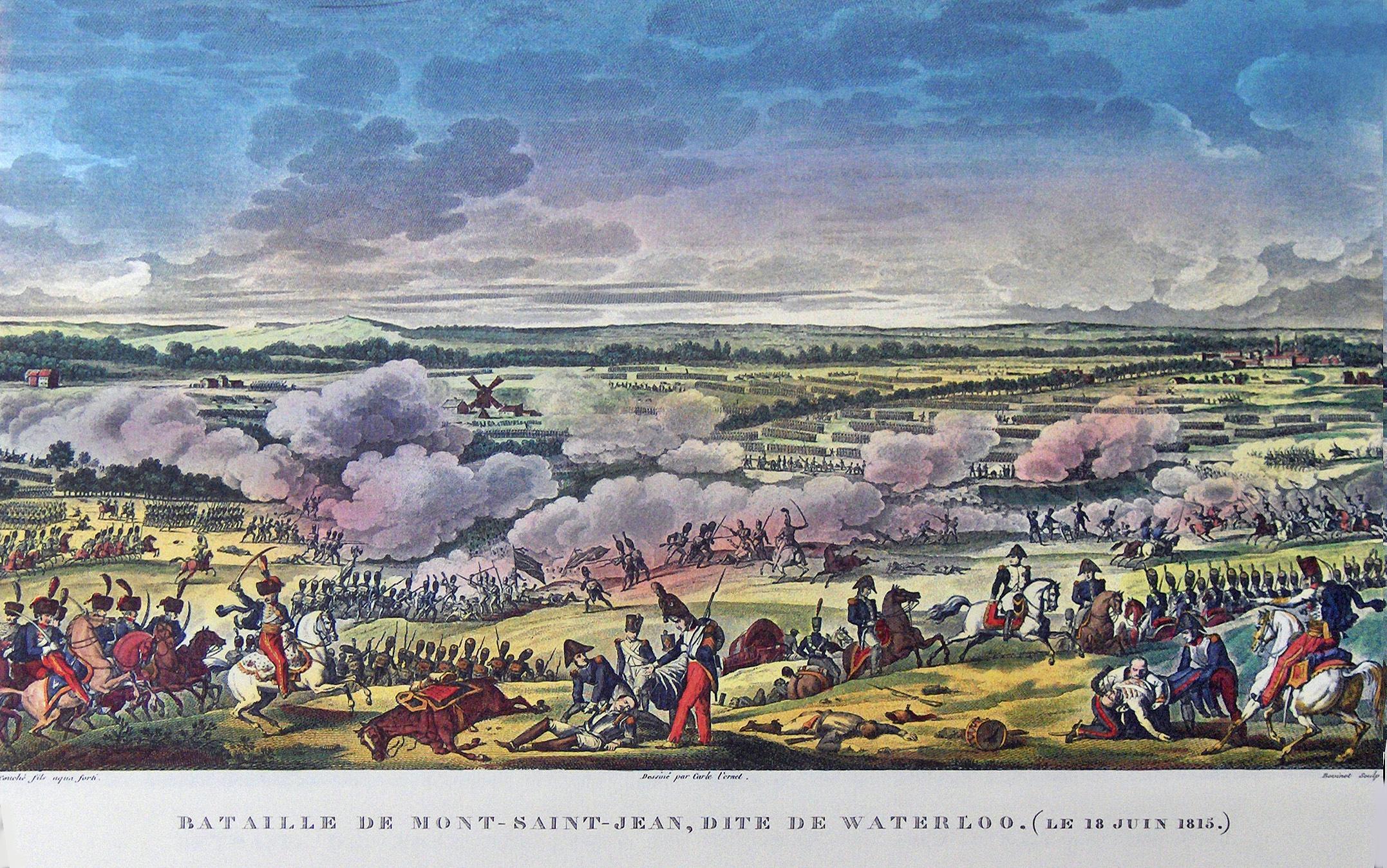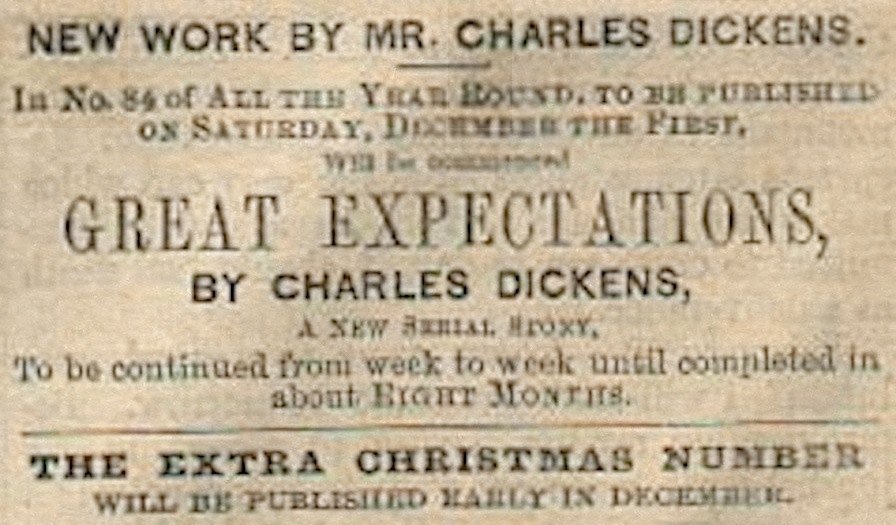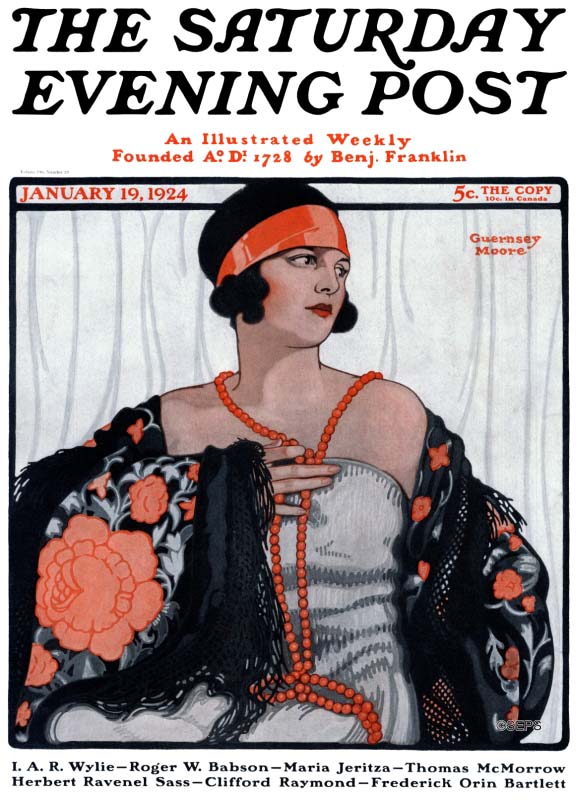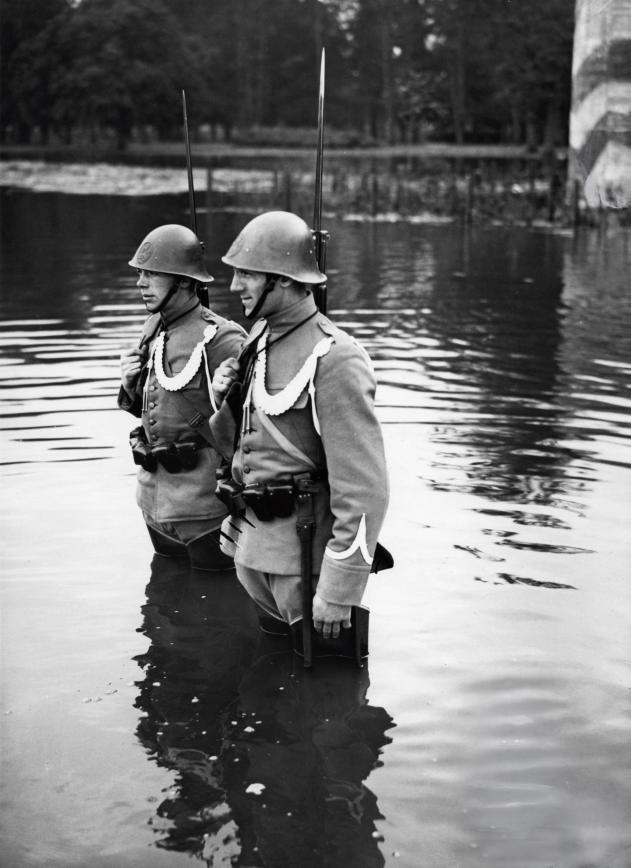|
No Surrender (novel)
''No Surrender'' is a 1942 war thriller novel by the German writer Martha Albrand Martha Albrand (1914–1981), born Heidi Huberta Freybe Loewengard was a German-American novelist. Albrand was the name of her Danish great-grandfather. She was the sister of the actress Jutta Freybe and the writer Johanna Sibelius. The film ..., by then living in exile in the United States. It focuses on the activities of the Dutch Resistance during World War II and was favourably reviewed by critics.Reilly p.24-25 It was serialized in '' The Saturday Evening Post''. Her first novel since emigrating in 1937, it launched her popular reputation in the English-speaking world. Synopsis Ruis, a Dutch army officer is wounded and captured during the German invasion of the Netherlands. He is offered a choice to work and collaborate with the German occupiers of face execution. He agrees to work for the Germans as a mean for slipping secret information to the Dutch underground. Yet his secret pa ... [...More Info...] [...Related Items...] OR: [Wikipedia] [Google] [Baidu] |
Martha Albrand
Martha Albrand (1914–1981), born Heidi Huberta Freybe Loewengard was a German-American novelist. Albrand was the name of her Danish great-grandfather. She was the sister of the actress Jutta Freybe and the writer Johanna Sibelius. The film ''Captain Carey, U.S.A.'' was based on her novel '' After Midnight''. In 1950, the book ''After Midnight'' won the Grand Prix de Littérature Policière International Prize, the most prestigious award for crime and detective fiction in France.Guide des Prix littéraires online ed. ''Le Rayon du Polar''. Synopsis of French prizes rewarding French and international crime literature, with lists of laureates for each Prize. Grand Prix de littérature policière: pp. 18–36. Bibliography Novels written as Katrin Holland ...[...More Info...] [...Related Items...] OR: [Wikipedia] [Google] [Baidu] |
Little, Brown And Company
Little, Brown and Company is an American publishing company founded in 1837 by Charles Coffin Little and James Brown in Boston. For close to two centuries it has published fiction and nonfiction by American authors. Early lists featured Emily Dickinson's poetry and ''Bartlett's Familiar Quotations''. Since 2006 Little, Brown and Company is a division of the Hachette Book Group. 19th century Little, Brown and Company had its roots in the book selling trade. It was founded in 1837 in Boston by Charles Little and James Brown. They formed the partnership "for the purpose of Publishing, Importing, and Selling Books". It can trace its roots before that to 1784 to a bookshop owned by Ebenezer Battelle on Marlborough Street. They published works of Benjamin Franklin and George Washington and they were specialized in legal publishing and importing titles. For many years, it was the most extensive law publisher in the United States, and also the largest importer of standard English law a ... [...More Info...] [...Related Items...] OR: [Wikipedia] [Google] [Baidu] |
Chatto And Windus
Chatto & Windus is an imprint of Penguin Random House that was formerly an independent book publishing company founded in London in 1855 by John Camden Hotten. Following Hotten's death, the firm would reorganize under the names of his business partner Andrew Chatto and poet William Edward Windus. The company was purchased by Random House in 1987 and is now a sub-imprint of Vintage Books within the Penguin UK division. History The firm developed out of the publishing business of John Camden Hotten, founded in 1855. After his death in 1873, it was sold to Hotten's junior partner Andrew Chatto (1841–1913), who took on the poet William Edward Windus (1827-1910), son of the patron of J. M. W. Turner, Benjamin Godfrey Windus (1790-1867), as partner. Chatto & Windus published Mark Twain, W. S. Gilbert, Wilkie Collins, H. G. Wells, Wyndham Lewis, Richard Aldington, Frederick Rolfe (as Fr. Rolfe), Aldous Huxley, Samuel Beckett, the "unfinished" novel ''Weir of Hermiston'' (1896) by R ... [...More Info...] [...Related Items...] OR: [Wikipedia] [Google] [Baidu] |
War Novel
A war novel or military fiction is a novel about war. It is a novel in which the primary action takes place on a battlefield, or in a civilian setting (or home front), where the characters are preoccupied with the preparations for, suffering the effects of, or recovering from war. Many war novels are historical novels. Origins The war novel's origins are in the epic poetry of the classical and medieval periods, especially Homer's '' The Iliad'', Virgil's '' The Aeneid'', sagas like the Old English ''Beowulf'', and Arthurian literature. All of these epics were concerned with preserving the history or mythology of conflicts between different societies, while providing an accessible narrative that could reinforce the collective memory of a people. Other important influences on the war novel included the tragedies of dramatists such as Euripides, Seneca the Younger, Christopher Marlowe, and Shakespeare. Euripides' '' The Trojan Women'' is a powerfully disturbing play on the them ... [...More Info...] [...Related Items...] OR: [Wikipedia] [Google] [Baidu] |
Thriller Novel
Thriller is a genre of fiction, having numerous, often overlapping subgenres. Thrillers are characterized and defined by the moods they elicit, giving viewers heightened feelings of suspense, excitement, surprise, anticipation and anxiety. Successful examples of thrillers are the films of Alfred Hitchcock. Thrillers generally keep the audience on the "edge of their seats" as the plot builds towards a climax. The cover-up of important information is a common element. Literary devices such as red herrings, plot twists, unreliable narrators, and cliffhangers are used extensively. A thriller is often a villain-driven plot, whereby they present obstacles that the protagonist must overcome. The most common genres that overlap with the thriller genre include crime, horror and detective fiction. Characteristics Writer Vladimir Nabokov, in his lectures at Cornell University, said: In an Anglo-Saxon thriller, the villain is generally punished, and the strong silent man generally w ... [...More Info...] [...Related Items...] OR: [Wikipedia] [Google] [Baidu] |
Martha Albrand
Martha Albrand (1914–1981), born Heidi Huberta Freybe Loewengard was a German-American novelist. Albrand was the name of her Danish great-grandfather. She was the sister of the actress Jutta Freybe and the writer Johanna Sibelius. The film ''Captain Carey, U.S.A.'' was based on her novel '' After Midnight''. Bibliography Novels written as Katrin Holland * ''Man spricht über Jacqueline'', 1926 * ''Wie macht man das nur ???'', 1930 * ''Unterwegs zu Alexander: Ein Liebesroman'', 1932 * ''Die silberne Wolke: Ein Roman aus unserer Zeit'', 1933 * ''Babett auf Gottes Gnaden'', 1934 * ''Das Mädchen, das niemand mochte'', 1935 * ''Das Frauenhaus'', 1935 * ''Carlotta Torresani'', 1938 * ''Einsamer Himmel'', 1938 * ''Vierzehn Tage mit Edita'', 1939 * ''Helene'', 1940 * ''The Obsession of Emmet Booth'', 1957 Novels written as Martha Albrand * ''No Surrender'', 1942 * ''Without Orders'', 1943 * ''Endure No Longer'', 1944 * ''None Shall Know'', 1945 * ''Remembered Anger'', 1946 * ''Wh ... [...More Info...] [...Related Items...] OR: [Wikipedia] [Google] [Baidu] |
World War II
World War II or the Second World War, often abbreviated as WWII or WW2, was a world war that lasted from 1939 to 1945. It involved the vast majority of the world's countries—including all of the great powers—forming two opposing military alliances: the Allies and the Axis powers. World War II was a total war that directly involved more than 100 million personnel from more than 30 countries. The major participants in the war threw their entire economic, industrial, and scientific capabilities behind the war effort, blurring the distinction between civilian and military resources. Aircraft played a major role in the conflict, enabling the strategic bombing of population centres and deploying the only two nuclear weapons ever used in war. World War II was by far the deadliest conflict in human history; it resulted in 70 to 85 million fatalities, mostly among civilians. Tens of millions died due to genocides (including the Holocaust), starvation, ma ... [...More Info...] [...Related Items...] OR: [Wikipedia] [Google] [Baidu] |
Serial (literature)
In literature, a serial is a printing or publishing format by which a single larger work Work may refer to: * Work (human activity), intentional activity people perform to support themselves, others, or the community ** Manual labour, physical work done by humans ** House work, housework, or homemaking ** Working animal, an animal t ..., often a work of narrative fiction, is published in smaller, sequential instalments. The instalments are also known as ''numbers'', ''parts'' or ''fascicles'', and may be released either as separate publications or within sequential issues of a periodical publication, such as a magazine or newspaper. Serialisation can also begin with a single short story that is subsequently turned into a series. Historically, such series have been published in periodicals. Popular short-story series are often published together in book form as collections. Early history The growth of moveable type in the 17th century prompted episodic and often disconnec ... [...More Info...] [...Related Items...] OR: [Wikipedia] [Google] [Baidu] |
The Saturday Evening Post
''The Saturday Evening Post'' is an American magazine, currently published six times a year. It was issued weekly under this title from 1897 until 1963, then every two weeks until 1969. From the 1920s to the 1960s, it was one of the most widely circulated and influential magazines within the American middle class, with fiction, non-fiction, cartoons and features that reached two million homes every week. The magazine declined in readership through the 1960s, and in 1969 ''The Saturday Evening Post'' folded for two years before being revived as a quarterly publication with an emphasis on medical articles in 1971. As of the late 2000s, ''The Saturday Evening Post'' is published six times a year by the Saturday Evening Post Society, which purchased the magazine in 1982. The magazine was redesigned in 2013. History Rise ''The Saturday Evening Post'' was first published in 1821 in the same printing shop at 53 Market Street in Philadelphia where the Benjamin Franklin-founded ''Pennsyl ... [...More Info...] [...Related Items...] OR: [Wikipedia] [Google] [Baidu] |
English-speaking
Speakers of English are also known as Anglophones, and the countries where English is natively spoken by the majority of the population are termed the ''Anglosphere''. Over two billion people speak English , making English the largest language by number of speakers, and the third largest language by number of native speakers. England and the Scottish Lowlands, countries of the United Kingdom, are the birthplace of the English language, and the modern form of the language has been being spread around the world since the 17th century, first by the worldwide influence of England and later the United Kingdom, and then by that of the United States. Through all types of printed and electronic media of these countries, English has become the leading language of international discourse and the lingua franca in many regions and professional contexts such as science, navigation and law. The United Kingdom remains the largest English-speaking country in Europe. The United States and ... [...More Info...] [...Related Items...] OR: [Wikipedia] [Google] [Baidu] |
German Invasion Of The Netherlands
The German invasion of the Netherlands ( nl, Duitse aanval op Nederland), otherwise known as the Battle of the Netherlands ( nl, Slag om Nederland), was a military campaign part of Case Yellow (german: Fall Gelb), the Nazi German invasion of the Low Countries (Belgium, Luxembourg, and the Netherlands) and France during World War II. The battle lasted from 10 May 1940 until the surrender of the main Dutch forces on 14 May. Dutch troops in the province of Zeeland continued to resist the ''Wehrmacht'' until 17 May when Germany completed its occupation of the whole country. The invasion of the Netherlands saw some of the earliest mass paratroop drops, to occupy tactical points and assist the advance of ground troops. The German ''Luftwaffe'' used paratroopers in the capture of several airfields in the vicinity of Rotterdam and The Hague, helping to quickly overrun the country and immobilise Dutch forces. After the devastating Nazi bombing of Rotterdam by the ''Luftwaffe'' on 14 M ... [...More Info...] [...Related Items...] OR: [Wikipedia] [Google] [Baidu] |





